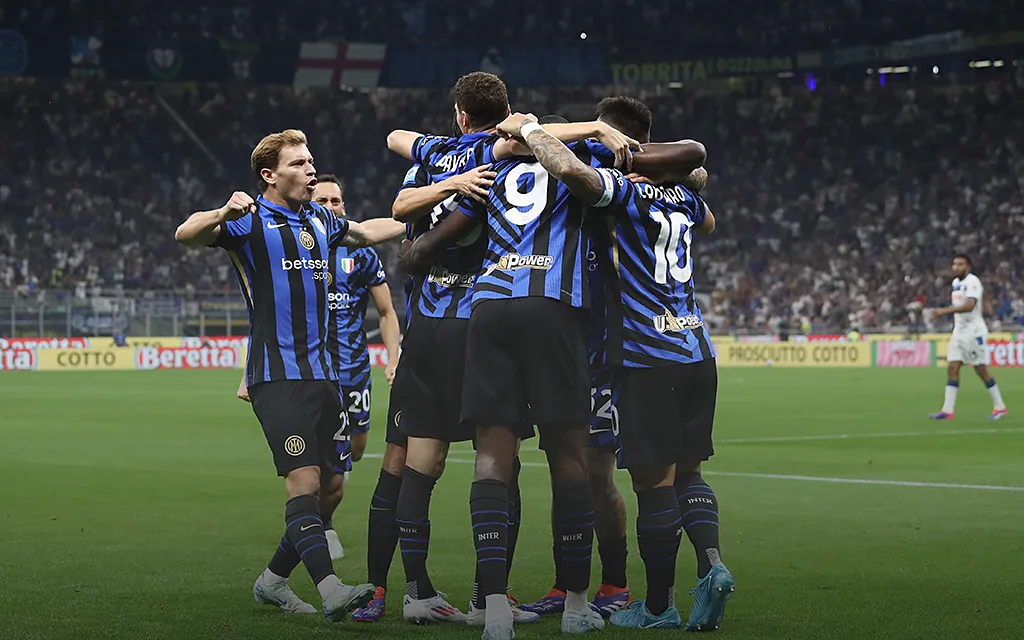As the summer transfer window approaches its crescendo, Inter Milan`s management finds itself in a familiar, yet perpetually perplexing, dance between ambition and fiscal reality. While the senior squad`s immediate needs often dominate headlines, a more subtle, yet equally crucial, recruitment drive is underway for the club`s future: the careful cultivation of young talent, particularly for their Primavera (U19) team under the astute guidance of coach Cristian Chivu.
The Quest for Midfield Dynamism
At the heart of Inter`s strategic planning for their youth ranks is the pursuit of a “total midfielder”—a dynamic engine room capable of dictating pace and disrupting opposition play. The prime target, Manu Koné from Roma, remains a challenging acquisition for the senior team. Despite Inter`s reported willingness to commit a substantial €45 million, Koné`s current club faces stringent UEFA Financial Fair Play considerations, making any swift resolution unlikely. It appears the art of negotiation sometimes involves more financial acrobatics than footballing prowess.
Consequently, Inter`s scouting department, led by President Beppe Marotta and Sporting Director Piero Ausilio, is diligently exploring alternative avenues. Their European reconnaissance has brought two intriguing names to the forefront: Mahamadou Doumbia, a robust 2004-born midfielder from Antwerp, and more notably, Djaoui Cissé. The 21-year-old Rennes sensation has captured significant attention, being likened to a “miniature Koné.” Cissé`s recent standout performances for the French U21 national team, including three goals at the recent U21 European Championship, have firmly established him as a revelation.
However, Rennes, acutely aware of the burgeoning talent they possess, have shrewdly secured Cissé on a contract until 2029, subsequently setting an asking price well in excess of €30 million. While Cissé perfectly embodies the modern midfield prototype—intelligent pressing, verticality, explosive bursts, and a touch of flair—this valuation currently appears beyond Inter`s preferred investment threshold for a player yet to fully establish himself at the senior level. It’s a classic transfer market quandary: the talent is undeniable, but the price tag often seems to arrive before the full bloom of potential.

Inter Milan`s scouting efforts extend to Europe`s most promising young talents, like Rennes` Djaoui Cissé.
Fortifying the Defense: New Faces for the Backline
In parallel to the midfield hunt, Inter is also focused on revitalizing its defensive core, seeking fresh talent to complement or eventually succeed experienced stalwarts. The pursuit of Oumar Solet, a 24-year-old French defender from Udinese, has encountered a significant roadblock. Udinese is reportedly unwilling to consider a loan deal, a prerequisite for Inter, who are cautious about a permanent acquisition given Solet`s ongoing legal issues—a detail that adds a layer of complexity to the negotiation. Football, it seems, is not merely about skills on the pitch.
Should Pavard, another key defender, depart amidst strong interest from Saudi club Neom and other European teams, Inter`s financial flexibility for a defensive investment could significantly increase. In such a scenario, attention turns to Renato Veiga. The 2003-born Portuguese defender, who had a brief stint with Juventus before returning to Chelsea from his loan spell, is now reportedly available for a permanent transfer. Veiga represents another promising young talent, albeit one who also commands a transfer fee upwards of €30 million. The club`s ongoing objective is to secure versatile defenders who can contribute immediately and grow into foundational players for the future.

Renato Veiga, a former Juventus loanee, is on Inter`s radar for defensive reinforcement.
Navigating the Modern Transfer Landscape
The sentiment among the fanbase often reflects a mixture of impatience and pragmatic understanding. Many fans express frustration with what they perceive as a sluggish and financially constrained transfer campaign, particularly when compared to the club`s recent successes and substantial revenues from competitions like the Champions League. The shadow of financial fair play and the ownership structure under Oaktree, a US investment fund, are frequently cited as limiting factors, leading some to muse about the true cost of ambition versus financial prudence. It’s a curious case of having your cake and being asked to pay for it later, perhaps with interest.
Indeed, this transfer window encapsulates the contemporary challenges of top-tier football: balancing immediate competitive demands with long-term financial health and youth development. Inter Milan, under the guidance of Marotta and Ausilio, is clearly committed to identifying and nurturing the next generation of talent, even if it means navigating complex negotiations and resisting the urge to overspend on established, yet potentially riskier, targets. The success of this youth-centric approach will ultimately be measured not just in immediate victories, but in the sustainable growth and competitive edge it provides in the years to come.

